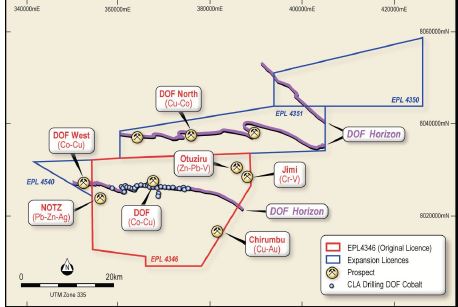
Renewable revolution drives cobalt search in Opuwo

With the boom in electric vehicle production across the globe, as well as renewable storage, and smartphones, Australian-listed exploration firm, Celsius Resources is making inroads in Namibia in search of cobalt, which is used in the manufacturing of cobalt-based, lithium ion batteries.
The Celsius Resources Managing Director, Brendan Borg in a presentation delivered at the Paydirt 2017 Africa Downunder conference in Perth this week said, Celsius is moving to an immediate 95% interest in Opuwo Cobalt Project in partnership with local shareholders, Gecko Namibia.
The Opuwo Cobalt Project is an advanced exploration project with intensive surface exploration already undertaken by previous explorers. The project is located in the central part of the Kunene Region west of Opuwo, some 800 kilometres from Windhoek and 750 kilometres from the port of Walvis Bay. According to Borg, it has the potential to find large-scale, sediment-hosted copper-cobalt mineralisations.
Borg said that Gecko Namibia is to become the largest shareholder of Celsius as a result of the 95% shareholding transaction and Gecko Namibia’s Managing Director Pine van Wyk will be appointed to the Celsius Board.
He said that the new licences surrounding Opuwo totalling approximately 782 km2 acquired from Gecko Namibia, and over 100 km of proven cobalt-copper prospects, are under control of Celsius.
According to Borg, a 15 km cobalt-copper-zinc mineralised zone was identified in the initial drilling programme and since August 2017, 56 holes have been completed by Celsius.
Borg also said that metallurgical test work is in progress and the results are expected to be positive for sulphide-hosted mineralisation. Furthermore he said that a scoping study is underway and is set to be completed in the first quarter of 2018. The first key consultants for the assay have been appointed.
Currently across the globe, cobalt’s role in the renewables revolution is robust and demand projections have seen price increase to US$61,500/tonne, with further upside expected, he added.
Cobalt is also widely used for super-alloys in turbines, space vehicles, rocket engines and power plants.











































